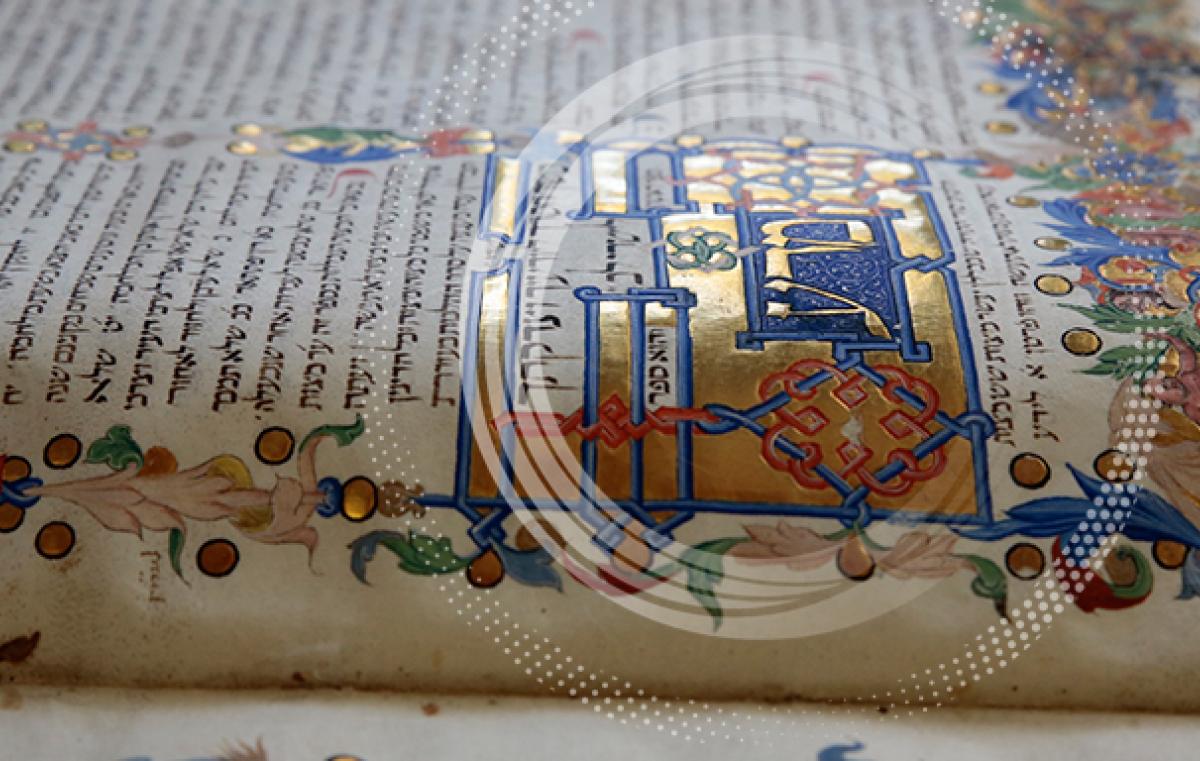AI and Hebrew Manuscripts
Ten million euro grant to develop computational analysis will enable full-text search of the entire corpus of medieval Hebrew manuscripts and revolutionize Jewish studies

In the world of historical document research, automatic reading of handwritten manuscripts and textual search of their contents has remained an unattainable dream. While optical character recognition (OCR) of printed material is today commonplace, deciphering and transcribing individual Medieval handwritings has remained out of reach, especially for less common alphabets like Hebrew.
Hebrew textual studies are on the cusp of an immense leap forward with the announcement that the European Research Council (ERC) has awarded 10 million euros to Dr. Avi Shmidman, from the Berman Department of Literature of the Jewish People at Bar-Ilan University, the École pratique des hautes études (Paris Sciences-Lettres University), and Tel Aviv University, with the participation of Haifa University and the National Library of Israel (NLI). The grant is for a six-year project to develop cutting edge computational methods to analyze tens of thousands of medieval Hebrew manuscripts and fragments from the world's collections by using their digital images curated in the NLI's KTIV collection.
The newly funded project, called “MIDRASH - Migrations of Textual and Scribal Traditions via Large-Scale Computational Analysis of Medieval Manuscripts in Hebrew Script,” is the first ERC Synergy grant in Jewish studies and the first for computational manuscript studies.
It will be led jointly by four principal investigators: Avi Shmidman (Bar-Ilan University), Daniel Stökl Ben Ezra (École pratique des hautes études, Paris-Sciences-Lettres University), Judith Olszowy-Schlanger (École pratique des hautes études, Paris Sciences-Lettres University and Oxford University), Nachum Dershowitz (Tel Aviv University) and Avi Shmidman (Bar-Ilan University), with the participation of the National Library of Israel and Haifa University.
KTIV is a trailblazing initiative, spearheaded by the NLI, to enable global centralized digital access to the more than 100,000 known Hebrew manuscripts throughout the world. The vast majority of these manuscripts have already been digitized and are hosted by KTIV, including NLI's own collection of 10,000 manuscripts. The computational analysis of this enormous corpus of millions of pages will reveal and map previously unsuspected networks of transmission, and migration of textual and paleographical features, (paleography being the study of historic writing systems, the deciphering, dating, and establishing provenance of manuscripts.).
The resulting AI-powered analysis will be made freely available to the public. For the very first time, scholars and laypersons will be able to conduct comprehensive queries across the entire corpus, combining intelligent full-text search with rich metadata filters.
"This will be a watershed moment in the field of Jewish Studies, nearly every aspect of which will be ripe for reconsideration and reevaluation in light of substantial supplementary pieces of evidence," said Dr. Avi Shmidman, Senior Lecturer of Hebrew Literature at Bar-Ilan University, and member of the Academy of the Hebrew Language, and Senior Researcher at DICTA - The Israel Center for Text Analysis. "This project is poised to be a game changer, deeply transforming our historical knowledge, and advancing our understanding of the Jewish literary heritage. It will set a new bar in the field of computational humanities, providing a state-of-the-art foundation of algorithms and models for the continued study of many additional manuscript cultures."
Oren Weinberg, CEO of the National Library of Israel, said, "Winning this prestigious grant presents an extraordinary opportunity to add advanced capabilities to the KTIV project, the world's only digital repository of approximately 100,000 Hebrew manuscripts housed at the National Library of Israel. In the foreseeable future, we will be able to use the ERC's groundbreaking research to enable the deciphering of handwritten Hebrew manuscripts and their conversion into machine-readable text. This is an unprecedented technological achievement whose results will open new horizons for research in Jewish studies."
ERC Synergy Grants support small groups of two to four principal investigators to jointly address ambitious research problems that could not be addressed by individual teams working alone.